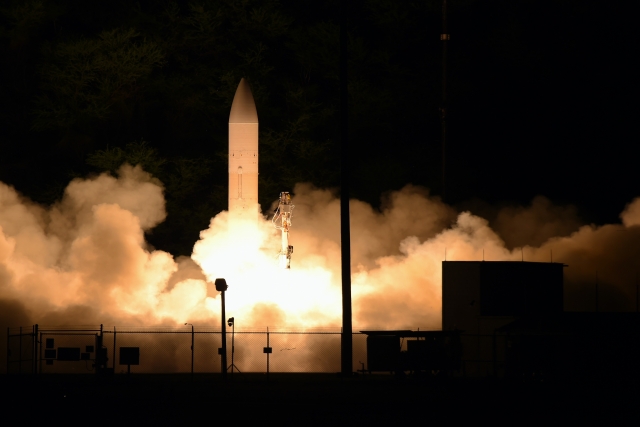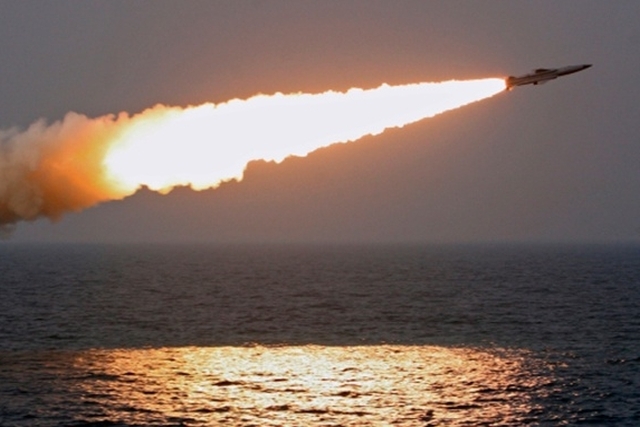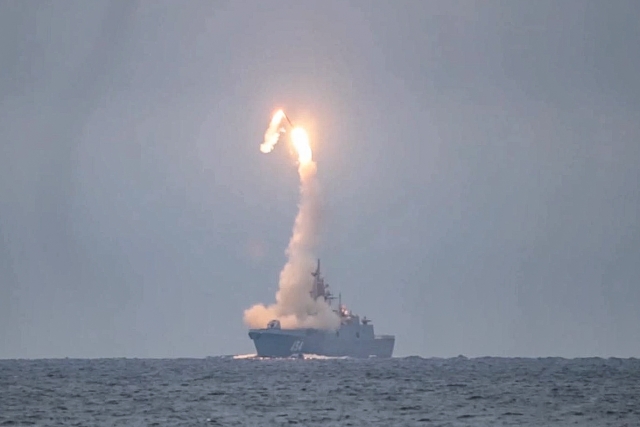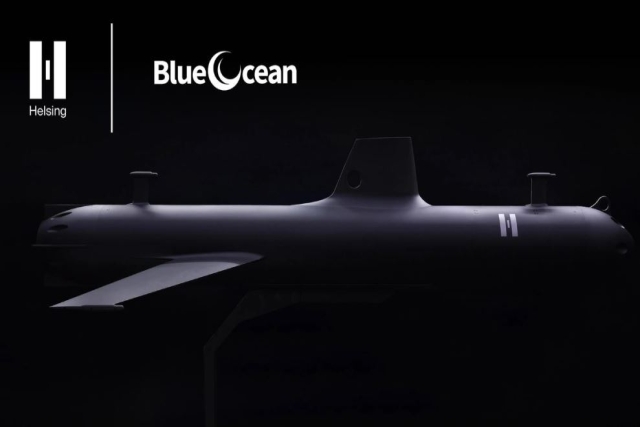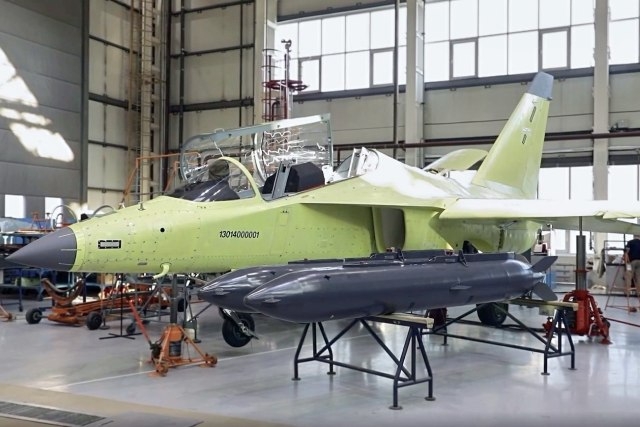US to Deploy its First Hypersonic Weapon by 2023: Esper
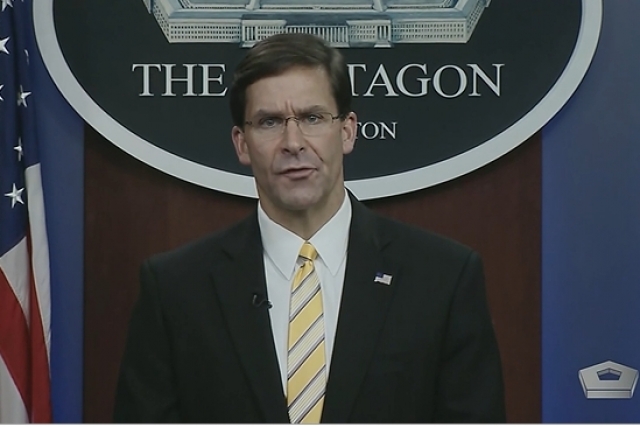
The United States plans to deploy its first hypersonic missile system with US forces by 2023, defence secretary, Mark Esper has said.
"As our competitors develop long-range fires to inhibit our freedom of maneuver, we're increasing our investments in hypersonics over the next five years, so we can ramp up testing and develop these capabilities to the warfighter as quickly as possible," he said.
In March, the Army and Navy reached an important milestone by jointly launching a successful test of a hypersonics glide body, he noted. The plan is to integrate this technology into an Army battery by 2023.
His remarks were given during the Association of the United States Army's annual meeting on October 15. "Today, emerging technologies are expanding the geometry of the battlefield and transforming how we think about, prepare and plan for war," he said.
Speaking at the same conference on October 13, US Army Secretary Ryan McCarthy said “U.S. hypersonic missiles can strike within six inches of a target after traveling thousands of miles at Mach 5 or faster,” referring to a Mar. 19 test of the missile, which was fired from the Pacific Missile Range Facility in Kauai, Hawaii.
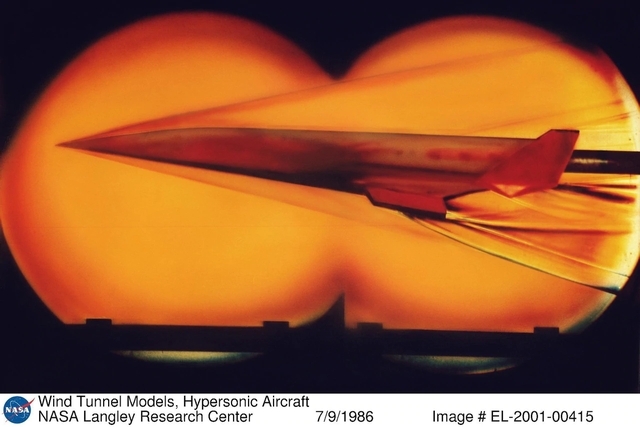
Budget boost for hypersonic weapons:
The Pentagon’s hypersonics budget since 2016 has gone up by a factor of 10. The fiscal 2020, it's about $3.5 billion, and it's expected to grow in future years.
The US is working on a hypersonic glide body weapon as well as an anti-ship or surface to surface missile.
The Defense Department is developing hypersonic strike systems because of their unique warfighting aspects of range, speed, maneuverability, survivability and lethality, said Mike E. White, assistant director of hypersonics, Office of the Undersecretary of Defense for Research and Engineering on October 1 during a conference on Hypersonics.
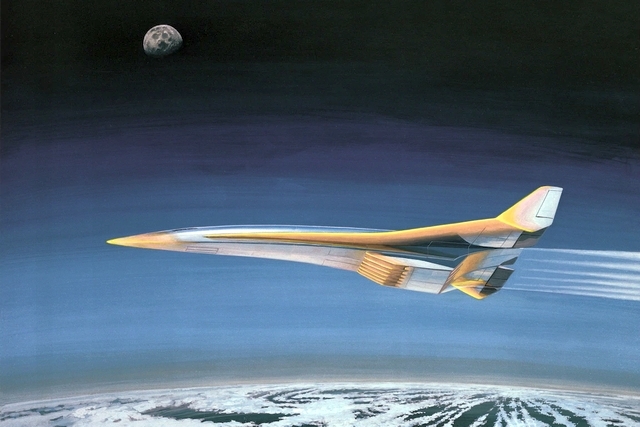
Re-usable Hypersonic missiles.
The Pentagon is currently looking at designing hypersonic systems that are reusable, White said, meaning that once a hypersonic vehicle takes off, it doesn't just explode like a missile, but rather, it can be used again, in certain ways similar to the reusable SpaceX's Falcon 9 rocket.
He said factors that will go into developing a reusable system include, developing suitable high-temperature materials; effective thermal management systems; and, turbine-based propulsion systems, as opposed to rocket-based, boost-glide systems or rocket-boosted scramjet-powered cruise missiles.
Reusable hypersonics is still in the maturation stage 1, he said, meaning that it's still got a long way to go. System and subsystem integration is critically important in this regard, he added. "It's a hard problem."
Wind Tunnel limitations in designing hypersonic weapons
Turbulence modeling using wind tunnels is useful but can only go so far, White said. It's difficult to do that between mach 5 and mach 20 in the wind tunnel. The ultimate testbed may involve flying hypersonic test vehicles at that speed and evaluating the data, as weird things can happen at those incredible speeds that would otherwise be hard to predict.
Advanced modeling and simulation techniques being developed could address some of those concerns regarding testing, he added.
Interestingly, a number of small companies and venture capitalists are interested in trying to leverage the advantages of reusable hypersonics for various applications including military, satellite delivery and even human space transport. He said the department hopes to leverage those innovators.
